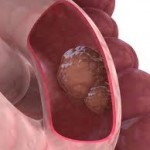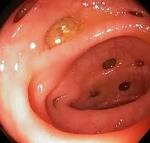How is fiber important? Fiber is essential in your diet because it helps you maintain the balance inside your body. Fiber sweeps away the excess fats and the harmful toxins that your body accumulates overtime. It helps you have regular elimination of wastes. This also provides nutrition for the good bacteria that helps your colon work efficiently. It is ideal to have 25 grams to 35 grams of fiber in your diet everyday.
There are three main types of fiber in a high fibre diet—insoluble, soluble, and prebiotic soluble. Insoluble fiber is the type of fiber that doesn’t dissolve in water at all. It helps the colon retain water for you to have bulky and soft stool. This makes it easier for you to eliminate harmful toxins from your body. Soluble fiber is fermented by the bacteria present in the colon. This type of fiber is essential for the survival of the good bacteria. Prebiotic soluble fiber is the healthiest of all because of inulin, galacto-oligosaccharide, and oligofrustose that it contains.
Fiber has so many health benefits that keep your body in perfect balance. This nutritional component strengthens the immune system, nourishes good bacteria in the colon, increases absorption of calcium, maintains regular bowel movement, facilitates weight loss, reduces the probability of cancer, controls appetite, controls weight, lowers level of triglycerides, reduces the smell of flatus, improves colon health, lowers asthma attacks, lowers allergy attacks, and increases density of the bone. A high fibre diet should have the prebiotic soluble fibers that really do the most good to your body. This high fibre diet is should be composed of bananas, garlic, onions, wheat, yams, chicory root, asparagus, leeks, and artichokes. Apart from all the general dietary component also helps in the improvement of some gastrointestinal diseases. Here are some of them:
1. IBS (irritable bowel syndrome)
 IBS is a gastrointestinal condition that is very embarrassing and very annoying to face and handle every single day. It is characterized by gas, bloating, abdominal cramps, constipation, and diarrhea. IBS is usually triggered by medications, diet, anxiety, and tension. A high fibre diet helps the IBS patient produce bulky and soft stool, making it easy for the waste to come out. But in taking fiber, the patient should be cautious and should take fiber in at low doses as a start, to prevent the digestive tract from getting too taxed.
IBS is a gastrointestinal condition that is very embarrassing and very annoying to face and handle every single day. It is characterized by gas, bloating, abdominal cramps, constipation, and diarrhea. IBS is usually triggered by medications, diet, anxiety, and tension. A high fibre diet helps the IBS patient produce bulky and soft stool, making it easy for the waste to come out. But in taking fiber, the patient should be cautious and should take fiber in at low doses as a start, to prevent the digestive tract from getting too taxed.
2. Colon cancer
 Colon cancer is a very hard problem to have. As with any type of cancer, it also progresses. When the tumors appear, they can be manually removed through surgery. This usually cures the colon cancer but only if the surgery is done at an early stage. But this is avoidable if the patient has a high fibre diet. Carcinogens are efficiently flushed out of your system because of the high fiber content of what you eat. When this happens, then the colon has a less probability of developing cancers. The high fibre diet also brings about the production of more short chain fatty acids that also retard cancer.
Colon cancer is a very hard problem to have. As with any type of cancer, it also progresses. When the tumors appear, they can be manually removed through surgery. This usually cures the colon cancer but only if the surgery is done at an early stage. But this is avoidable if the patient has a high fibre diet. Carcinogens are efficiently flushed out of your system because of the high fiber content of what you eat. When this happens, then the colon has a less probability of developing cancers. The high fibre diet also brings about the production of more short chain fatty acids that also retard cancer.
3. Diverticulosis
 Diverticulosis usually results from vigorous, long-term colon contractions. This produces high pressure in the colon that brings about inflated pockets that eventually get infected and perforated, resulting to perotinitis. Having a high fibre diet helps the colon relieve this pressure, and halts the formation of the pockets. Psyllium, wheat bran, or corn bran in your diet makes you have a healthier, non-painful, regular digestion. You definitely wouldn’t want to have a negative experience when it comes to eliminating your waste.
Diverticulosis usually results from vigorous, long-term colon contractions. This produces high pressure in the colon that brings about inflated pockets that eventually get infected and perforated, resulting to perotinitis. Having a high fibre diet helps the colon relieve this pressure, and halts the formation of the pockets. Psyllium, wheat bran, or corn bran in your diet makes you have a healthier, non-painful, regular digestion. You definitely wouldn’t want to have a negative experience when it comes to eliminating your waste.
4. Gas
 They say that having gas in your intestines is a something good. This only proves that your digestive tract is functioning well. The amount of gas produced actually depends on what you eat and what gender you have. The more frequent you have gas, the more active your good bacteria are in producing beneficial nutrients, especially the short-chain fatty acids. A normal person usually passes gas about 10 to 20 times in a day for women, and more for men. In this case, even if you have a high fibre diet, you should still consume it at a gradual phase, starting with a small amount at first, then slowly building up as your intestinal tract adjusts. The short chain fatty acids that are produced by the good bacteria lessens the bad odor of the flatus that comes out.
They say that having gas in your intestines is a something good. This only proves that your digestive tract is functioning well. The amount of gas produced actually depends on what you eat and what gender you have. The more frequent you have gas, the more active your good bacteria are in producing beneficial nutrients, especially the short-chain fatty acids. A normal person usually passes gas about 10 to 20 times in a day for women, and more for men. In this case, even if you have a high fibre diet, you should still consume it at a gradual phase, starting with a small amount at first, then slowly building up as your intestinal tract adjusts. The short chain fatty acids that are produced by the good bacteria lessens the bad odor of the flatus that comes out.
Make sure that you always consult your doctor about your high fibre diet if you are already diagnosed with any of these gastrointestinal conditions. This is to make sure that you harness more of the benefits of the fiber and not the possible harm that it might give you.
